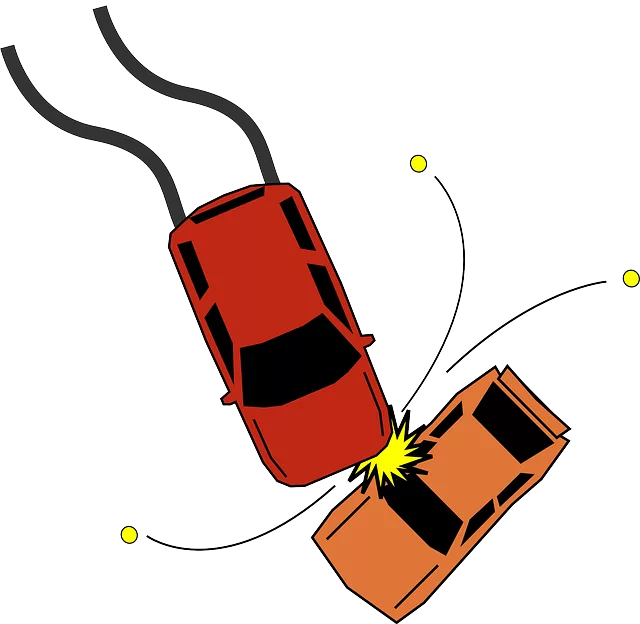Rideshare safety litigation in New York involves complex interactions between passengers, drivers, and companies. Head and brain injuries are common in accidents, making a New York head & brain injury attorney crucial for victims. These attorneys thoroughly investigate cases, gathering medical records, police reports, and surveillance footage to build strong claims against liable parties, including negligent drivers, vehicle maintenance issues, and company oversight. They help victims understand their rights, seek compensation for injuries, and hold accountable the responsible parties for ensuring safer rideshare experiences.
Rideshare Safety Litigation: Protecting Passengers and Holding Responsibilities Accountable in New York. This comprehensive guide explores the complex landscape of rideshare safety litigation, focusing on New York state laws and unique challenges. We delve into common causes of accidents, legal frameworks governing ridesharing, liability issues, and strategies for proving negligence and damages. With a particular emphasis on head and brain injuries, we highlight the crucial role of a specialized New York head & brain injury attorney in advocating for safety improvements and securing fair compensation for victims.
- Understanding Rideshare Safety Litigation: A Comprehensive Guide
- – Definition and scope of rideshare safety litigation
- – Common causes of rideshare accidents and associated injuries
- Legal Framework for Rideshare Safety in New York
- – Relevant laws and regulations governing ridesharing in New York state
- – Legal responsibilities of rideshare companies and drivers
Understanding Rideshare Safety Litigation: A Comprehensive Guide

Rideshare Safety Litigation: A Comprehensive Guide
Understanding rideshare safety litigation involves grasping the complex interplay between passengers, drivers, and companies. In New York and other bustling cities, where these services are widely used, ensuring passenger safety is paramount. Head and brain injuries, often severe, can result from accidents involving ride-sharing vehicles. A new york head & brain injury attorney plays a crucial role in navigating this landscape, advocating for victims and holding liable parties accountable.
Such litigation encompasses various issues, including driver negligence, vehicle maintenance, and company oversight. Attorneys must delve into detailed investigations, gathering evidence such as medical records, police reports, and surveillance footage. By examining these elements, they construct robust cases aimed at securing compensation for injuries, damages, and the profound impact on victims’ lives.
– Definition and scope of rideshare safety litigation

Rideshare Safety Litigation refers to legal cases arising from accidents or injuries sustained during ridesharing services. This includes incidents involving drivers from popular ride-hailing companies like Uber and Lyft. The scope encompasses a range of legal issues, from driver negligence and vehicle safety standards to liability for head and brain injuries suffered by passengers in crashes. In New York, where such services are widely used, head and brain injury attorneys play a crucial role in navigating these complex cases. They help victims understand their rights, pursue compensation for medical expenses, pain, and suffering, and hold accountable those responsible for ensuring safer rideshare experiences.
– Common causes of rideshare accidents and associated injuries

Rideshare accidents can result from a variety of factors, leading to significant injuries for passengers. Common causes include driver distraction—such as using mobile phones or adjusting settings—and impairment due to alcohol or drug use. Poor road conditions, like construction zones and hazardous weather, also contribute to crashes. Additionally, mechanical failures, such as defective brakes or tires, can be detrimental. Head and brain injuries are among the most severe outcomes; these accidents can have lasting effects on a New York head & brain injury attorney’s clients’ lives, requiring extensive medical treatment and rehabilitation.
Legal Framework for Rideshare Safety in New York

In New York, the legal framework for rideshare safety is a complex web of regulations and laws designed to protect passengers while ensuring the continued growth and operation of ride-hailing services. The state has implemented stringent standards for background checks, vehicle inspection, and driver training to mitigate risks associated with head and brain injuries, among other safety concerns. New York head and brain injury attorneys play a pivotal role in navigating this legal landscape, advocating for victims who have suffered injuries due to negligent rideshare operations.
Key legislation, such as the Ride-Hailing Safety Act, outlines specific requirements for ride-hailing companies, including regular reporting of accidents, implementation of safety features like seatbelts and airbags, and compliance with local traffic laws. These measures aim to reduce incidents leading to head and brain injuries, particularly in cases involving speeding, abrupt maneuvers, or collisions. Attorneys specializing in New York head and brain injury cases help victims understand their legal rights, seek compensation for medical expenses, pain and suffering, and other damages resulting from accidents involving rideshare vehicles.
– Relevant laws and regulations governing ridesharing in New York state

In New York State, ridesharing services are regulated by a series of laws and regulations designed to ensure passenger safety. The New York State Department of Motor Vehicles (DMV) oversees the licensing and regulation of rideshare companies, including background checks for drivers and vehicle safety standards. Additionally, the state has specific insurance requirements for rideshare operators, with policies that cover both passengers and third parties in case of accidents.
A key aspect of rideshare safety is the legal responsibility of drivers. New York law holds rideshare drivers to a higher standard of care compared to traditional taxi drivers, requiring them to exercise reasonable care and prudence while transporting passengers. In the event of an accident resulting in personal injuries, such as head or brain injuries, affected individuals may seek compensation through litigation against the rideshare company or the driver, with the assistance of a qualified New York head & brain injury attorney.
– Legal responsibilities of rideshare companies and drivers

Rideshare Safety Litigation: Holding Companies and Drivers Accountable
In New York and many other jurisdictions, rideshare companies like Uber and Lyft have a legal obligation to ensure passenger safety. This includes providing safe vehicles, conducting thorough driver background checks, and implementing robust safety protocols. Similarly, drivers who operate under these companies are expected to adhere to strict standards, such as maintaining their vehicle’s safety features in good working order and following traffic laws meticulously.
In the event of an accident involving a rideshare vehicle, determining liability can be complex. New York head & brain injury attorneys often assist victims by investigating the incident, reviewing driver records, and examining company policies. If negligence on the part of either the driver or the company is proven, victims may be entitled to compensation for medical expenses, pain and suffering, and other damages resulting from their injuries.
Rideshare safety litigation in New York is a complex yet crucial aspect of ensuring accountability and justice for victims of rideshare accidents. With an increasing number of riders relying on these services, understanding the legal framework and common causes of injuries is vital. As a New York head & brain injury attorney, it’s important to be aware of the rights and responsibilities within this evolving landscape. By staying informed and navigating the legal intricacies, individuals can find recourse and support when facing the aftermath of a rideshare accident.
